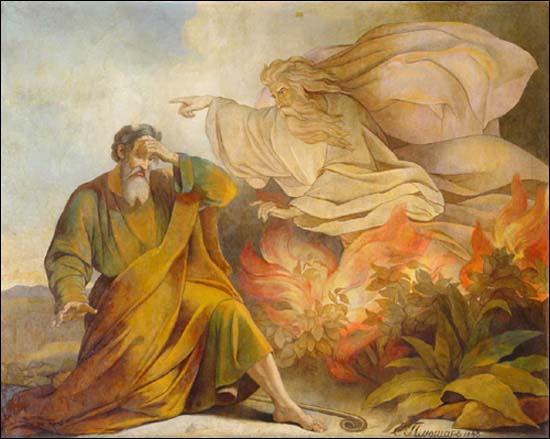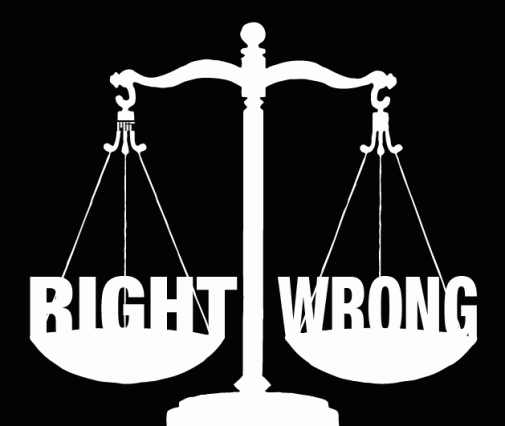Overview: Time and again in the Torah, God tells the Jewish People that He chose them as His Chosen Nation. Is the concept of choosing one nation over the other considered discriminatory or even racist?
If there is one lesson to be learned from the twentieth-century, it would be the dangers of racial supremacy. The Nazis made killing-machines to wipe out races they felt were “inferior” to their “superior” Aryan race. This resulted in the deaths of millions. They weren’t the only ones to do this, but they are an example of sophisticated people in recent history to perpetrate such evil.
The question we are dealing with in this chapter is whether the idea of Chosen Nation in Judaism is considered “racial supremacy.”
First, we must reiterate that which was mentioned earlier that Gentiles as well were part of the purpose of God’s creation; primarily to live a moral and civilized life. This, of course, includes the famous seven universal Noahide Laws. These seven laws are:[1] [i]
(1) Believe in one God and don’t serve idols.
(2) Do not curse God’s Name.
(3) Do not murder another human.
(4) Do not steal.
(5) Do not eat the limb of a living animal.
(6) Do not commit adultery.
(7) Establish a justice system and court for civil matters.
These seven laws branch into more Mitzvos because this specific list of seven was limited to those that are absolutely mandatory of Gentiles living in ancient Israel. But there are many more morals that stem from these seven fundamentals that are Mitzvos for all of mankind.[ii] This includes prayer, learning parts of Torah related to the Seven Noahide Laws, faith, and charity.[iii] In fact, it is said that charity is a means to repent for Gentiles.[iv] The Seven Laws include about 100 of the 613 Mitzvos in the Torah, most of them civil Mitzvos.[v]
Note however that the commitment to the Seven Noahide Laws must be with the knowledge that they are divinely ordained through the Torah. A large part of the reward for the Seven Laws are lost if it is only done out of relative morality or because of government law. Jews are commanded to keep their laws with the intent that they are divinely ordained and so too are the non-Jews.[vi] This is because the purpose of Creation is to serve God, as discussed in “What is the Purpose of Creation.”
Judaism does not advocate for Christianity and Islam even though they contain the Noahide laws. The reason is because Islam rejects the authenticity of the Torah and the uniqueness of the Jewish People. In fact, the Quran preaches salvation only for its followers. Similarly, Judaism cannot advocate for even non-Jews following Christianity because it too preaches salvation only to its followers and rejects the eternity of the Torah. But as a whole, there definitely are tremendous good elements for non-Jews following those religions despite that it could have been even better, if they only would have accepted the authenticity and eternity of the Torah.
For detailed discussions about the details of the Noahide Laws, see The Divine Code by Rabbi Moshe Weiner and Rabbi J. Immanuel Schochet. Also see AskNoah.org.
It is through these Noahide Laws that the Gentiles can earn their share in the World to Come. However, even the share of these righteous Gentiles is in no comparison to the high level of reward awaiting God’s Chosen Nation.[vii] The question thus arises: why don’t they have the same privilege and reward as the Jewish Nation?
There are a couple of notes worth mentioning:
First of all, the reason is because so decreed the Lord and so was His will, that only the Jewish Nation has the opportunity to attain the higher levels in the World to Come. Consequently, the spiritual technical setup of the Jew is inherently different than that of their counterparts,[viii] the Gentile unable to earn as much reward as the Jew. A parable would be from an animal which cannot obtain intellectual comfort and advantages, for example, as the human can—due to the technical setup of its nature. Fair or not—that is what the Creator decided. Why did He decide so? For a reason known only to Him; and as the saying goes: If we were to understand Him, we would be Him.
Note, that we call ourselves the chosen nation purely for spiritual superiority; in no manner, however, do we discriminate on a physical level, and we believe full-force in human-rights and equality. We were not chosen to manipulate or disrespect those not chosen. We were chosen to be ambassadors to the world—ambassadors of morality, of compassion, and of love. Our chosenness shouldn’t translate into arrogance and elitism, but of nothingness; total dedication and love for the Lord our Creator—for that is precisely what we were chosen for.
Moreover, it’s not even our “race” that we consider chosen. A proof for this would be from the fact that Judaism is inherited solely by maternal descent.[ix] One whose father is Jewish but mother not—is entirely Gentile. The Jewish soul is passed on from the mother only. If it was to be a racial distinction, he or she should be considered at least half or semi Jewish.
Furthermore illustrating that it has nothing to do with race is that fact that conversion is allowed. If a Gentile wishes to join the Jewish nation’s Covenant with God and wishes to accept all biblical and rabbinic laws of the Torah, they will be accepted as a complete member of the Jewish Nation if proven determent by a qualified Rabbi. Throughout history, many converts joined our special nation. Many famous Jewish leaders and scholars were converts or the children of converts, including Ruth, Prophet Obadiah, Unkelus (Targum), Rabbi Akiva, and Rabbi Meir. For more about conversion, see upcoming chapter “Converts to Judaism.”
Another answer in understanding why Jews have a potential higher reward for them in the World to Come, is because they have a bigger responsibility. The more you work—the more you profit. The Jews having significantly more Mitzvos than the seven Noahide Laws, only deserve more reward. [But for the question of why the Jews particularly have this privilege to be able to work harder and invest in more reward—we must go back to the previous points.]
Besides for the above answers, it must be emphasized that this spiritual advantage the Jews have is irrelevant to the “racism” issue. Despite the fact that us Jews view ourselves as spiritually-elite, in no shape or form is that to result in violence or disrespect to Gentiles. We are taught in the Torah to respect every human being who was created in the Image of God. It is forbidden to steal from them, to mock, to curse, or even disrespect. We mention this just to be clear to those who might have misunderstood the Jewish attitude towards their Gentile brethren. More on this in the upcoming chapter.
[1] These laws, although not written in the Written Torah, were received in tradition from Sinai in the Oral Torah.
[i] For the earliest sources of these laws see: Sanhedrin 56a, Tosefta Avodah Zarah 8:4 and Genesis Rabbah 34:8.
[ii] See Sanhedrin 58b, Likutei Sichos section 5 p. 157.
[iii] Sanhedrin 59a, Sifri Numbers 119, Rambam Hilchos Melachim 10:10, Hisvaadiyus 5744 Vol. 4 p. 2167-2168, 5742 Vol. 2 p. 954-958, 5749 Vol. 2 p. 448, 5744 Vol. 4 p. 2167, 5742 Vol. 2 p. 520, Sefer Hamaamarim Vol. 4 p. 25-27, Likutei Sichos section 5 p. 157. Also see Isaiah 56:7 and I Kings 8:41.
[iv] Hisvaadiyus 5742 Vol. 2 278 fn. 94.
[v] Learn Torah With 1994-1995 Torah Annual: a collection of the year’s best Torah page 18.
[vi] Rambam Hilchos Melachim 8:10, Hisvaadiyus 5744 Vol. 4 p. 2168-2169.
[vii] Not much early rabbinic texts discuss the idea of reward for the Gentiles, so there’s no source from there. But it would seem from the fact that the Lord tells us we are special and are privileged that we do have this benefit of having more reward.
[viii] See Tanya chapters 1 and 2.
[ix] Kiddushin 68b; see Ezra 10:3.




